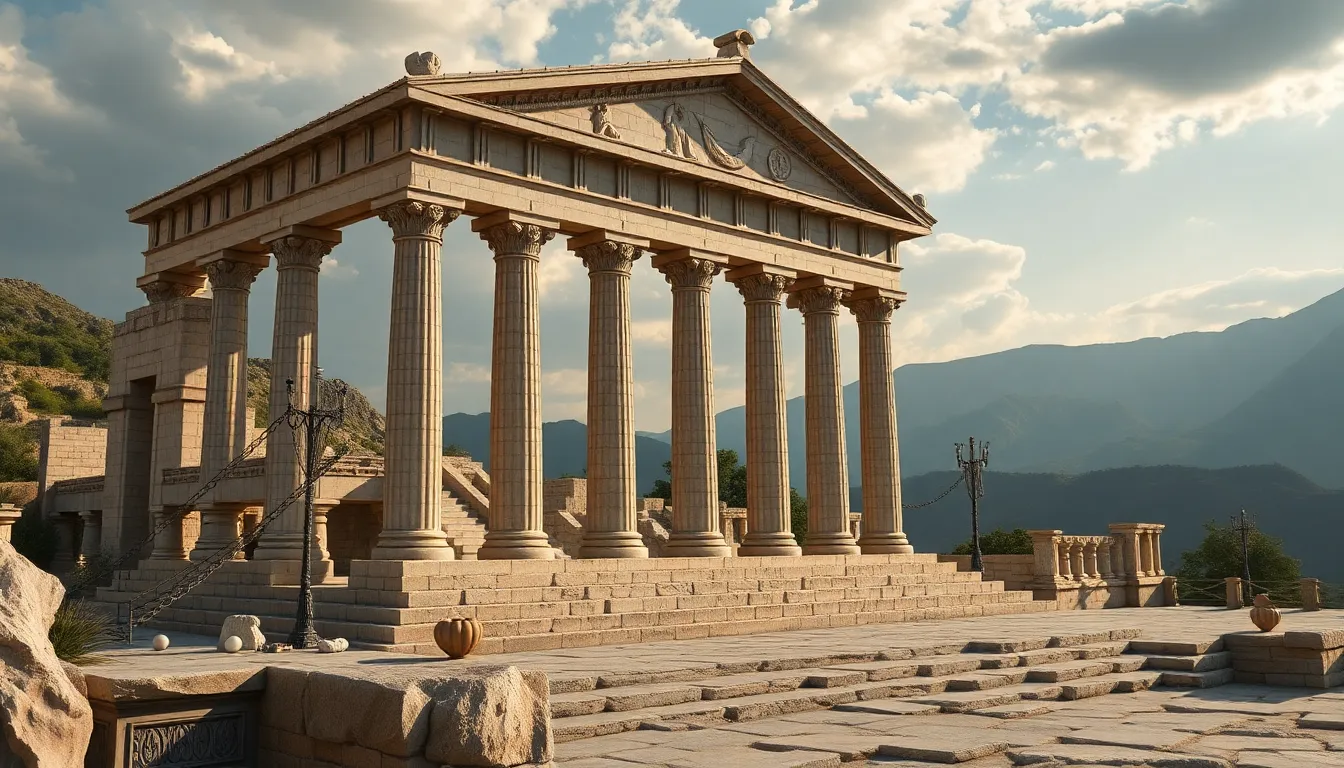Delphi: A Hub for Ancient Diplomacy and Alliances
I. Introduction
Delphi, situated on the slopes of Mount Parnassus, was one of the most significant religious and political centers of ancient Greece. Renowned for its Oracle, it served as a crucial hub for diplomacy and alliances among the Greek city-states. In a world where communication was often fraught with challenges, Delphi offered a unique sanctuary where leaders could seek divine guidance and negotiate peace.
The importance of diplomacy and alliances in the ancient world cannot be overstated. As city-states vied for power and influence, establishing strategic partnerships and resolving conflicts became essential for survival and prosperity. Delphi, with its spiritual and political gravitas, played a pivotal role in shaping these dynamics.
II. Historical Background of Delphi
Delphi’s origins can be traced back to the ancient myths of the Greeks, where it was believed to be the omphalos, or the “navel of the world.” The establishment of the Oracle of Delphi around the 8th century BCE marked the beginning of its prominence. The Pythia, a priestess who served as the Oracle, was said to deliver prophecies inspired by the god Apollo, making Delphi a focal point for those seeking divine counsel.
The Delphic sanctuary, dedicated to Apollo, became an intricate complex comprising temples, treasuries, and theaters. Pilgrims from all over Greece and beyond would flock to Delphi to consult the Oracle, paying homage and seeking advice on matters ranging from personal dilemmas to issues of war and peace.
III. Delphi as a Political Center
The influence of the Oracle on Greek city-states and their leaders was profound. Rulers and common citizens alike sought the Pythia’s insights, which were often cryptic yet deeply revered. Key historical figures, such as King Croesus of Lydia and various Spartan and Athenian leaders, turned to Delphi for guidance in their most critical decisions.
- Croesus: The wealthy king sought advice from the Oracle before engaging in war, leading to a pivotal moment in his reign.
- Lycurgus: The legendary lawgiver of Sparta consulted Delphi for guidance in establishing his reforms.
- Pericles: The Athenian statesman sought oracular counsel in matters of state, particularly during the Peloponnesian War.
These examples illustrate how the Oracle’s decisions could sway the fates of entire city-states, highlighting Delphi’s central role in political maneuvering.
IV. Religious and Cultural Significance
Delphi was not only a political center but also a religious and cultural beacon in ancient Greece. The Panhellenic Games, held every four years in honor of Apollo, attracted competitors and spectators from all over Greece, fostering a sense of unity among the often-fractured city-states.
The festivals and rituals at Delphi, such as the Pythian Games, were critical in promoting diplomatic relations. These events provided a platform for leaders to meet, discuss, and resolve differences in a peaceful setting. The spirit of competition and camaraderie during these games emphasized the importance of shared cultural identity among the diverse Greek populations.
V. Alliances Formed through Delphic Influence
Throughout its history, Delphi served as a mediator in numerous alliances and treaties. The Oracle’s endorsement was often seen as a divine seal of approval, lending legitimacy to political agreements. Notable alliances brokered with Delphic support include:
- The Amphictyonic League: A religious association of tribes that came together to protect Delphi and promote common interests.
- The Peace of Nicias: An agreement between Athens and Sparta, partly facilitated by Delphic mediation.
- The Sacred Wars: Conflicts that arose over the control of Delphi, which involved various city-states seeking the Oracle’s favor.
Case studies of conflicts resolved through Delphi’s mediation are numerous. For instance, the dispute between Athens and Sparta during the Peloponnesian War showed how the Oracle could influence diplomatic outcomes, often leading to temporary resolutions that allowed for further negotiations.
VI. Delphi’s Role in the Development of International Law
The early concepts of diplomacy and legal agreements can be traced back to the practices observed at Delphi. The sanctuary served as a neutral ground where disputes could be settled, and treaties could be established with the blessing of the gods.
Delphi’s principles of fairness and justice had a lasting impact on future diplomatic practices, inspiring later legal frameworks in the ancient world. The emphasis on divine sanction in agreements laid the foundation for the development of international law, as leaders sought legitimacy not just through power but also through moral and religious endorsement.
VII. Archaeological Evidence of Diplomatic Activities
Archaeological excavations at Delphi have uncovered a wealth of artifacts and inscriptions that reflect the diplomatic engagements that took place in the sanctuary. Items such as:
- Inscriptions detailing treaties and agreements.
- Votive offerings from city-states, indicating gratitude for successful negotiations.
- Statues and dedications commemorating important diplomatic events.
These artifacts provide valuable insights into Delphi’s political role and the nature of ancient diplomacy. Excavations have revealed the complex interactions between various Greek city-states and the pivotal role that Delphi played in facilitating these exchanges.
VIII. Conclusion
In summary, Delphi’s contributions to ancient diplomacy were significant and multifaceted. As a religious sanctuary, a political center, and a cultural hub, it fostered alliances, resolved conflicts, and influenced the development of early diplomatic practices. Its legacy can still be felt today, as the principles of seeking counsel, promoting dialogue, and establishing peaceful relations remain central to modern diplomatic endeavors.
Delphi’s historical significance as a mediator and a beacon of unity continues to inspire contemporary practices in international relations, reflecting the timeless value of diplomacy rooted in mutual respect and understanding.




